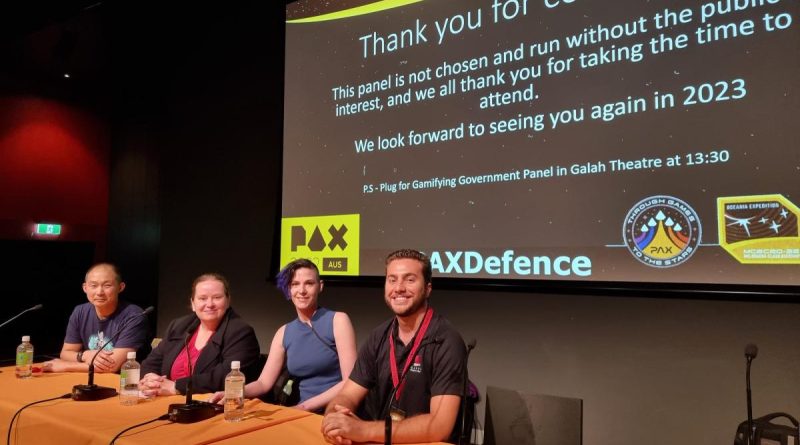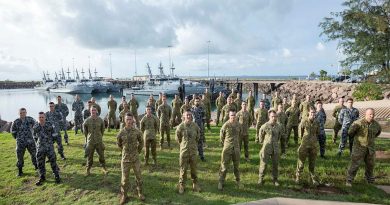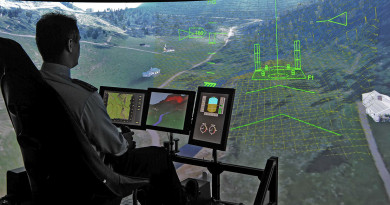Cyber skills to strengthen Defence training

Defence scientists featured on an expert panel at Australia’s largest gaming convention in October, discussing the use of game techniques, technologies and innovation to help prepare Defence forces for future challenges.
CAPTION: Defence scientists Mr Alex Rohl, right, and Dr Susannah Whitney, second from left, feature on a panel at PAX Aus 2022. Story by Sophie Calabretto.
The scientists, Alex Rohl and Susannah Whitney, participated in the Games Career Expo @ PAX, a three-day event within Melbourne’s PAX Aus 2022 convention that showcased educational pathways and career opportunities in the interactive games and entertainment industry.
They were joined by Erica Hediger from EDGY Air Force – The Creative Element, Lieutenant-Colonel Yong Si from Army HQ’s Synthetic Training Capability and Defence Intelligence analyst Adrian Webb, who moderated the panel.
Mr Rohl presented on his team’s work in applying cutting-edge data-science research and machine-learning techniques to automatically determine the functional roles of military cyber assets.
“Our research is being applied to dynamic enterprise systems, as well as static bespoke systems, in a military context,” he said.
He said the team used multiplayer co-op game Artemis: Spaceship Bridge Simulator as a combat management simulator analogue, with a focus on data-driven cyber situational awareness to support missions.
“Under the hood, networked games share enough similarities to real systems to enable fundamental research at the unclassified level, while also allowing universities, students and industry to participate in the work,” Mr Rohl said.
Dr Whitney spoke about her work within the serious games field and human sciences. Serious games are those used for non-entertainment purposes, such as training, teaching or practising a skill (an example being Microsoft Flight Simulator).
She pointed out that while there was enthusiasm for games and gaming technology to be used in military training, especially for younger generations, this did not always mean they translated seamlessly into training tools.
“Games and games technologies may have training potential but it’s important that decisions about the use of games and gaming technology are informed by evidence,” Dr Whitney said.
“We need to understand if the technology works, and how best it can be employed.”
Defence scientists are using and investigating games-based technologies for everything from training and simulation to research and innovation, and, in doing so, are raising Defence’s profile in Australian cyber and technology-related industries. They are also opening doors for engagement with future talent, and for collaboration and partnerships at large.
Mr Rohl said video games provided “the perfect testbed” for research collaboration on simulators.
“Perhaps, in the future, Defence might sponsor the creation of video games as a platform for further research collaboration,” he said.
More than 200 people attended the Defence panel session, which included audience interaction with the panellists through the #PaxDefence hashtag. For the Defence science panellists, a highlight was speaking to STEM students after the event.
Dr Whitney said she spoke to honours and doctorate students who were “excited to think that there could be an opportunity for them to work in Defence”.
.
.

.
.





